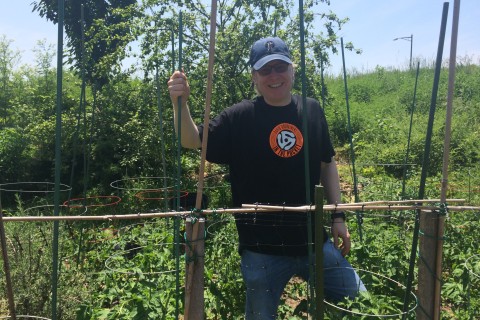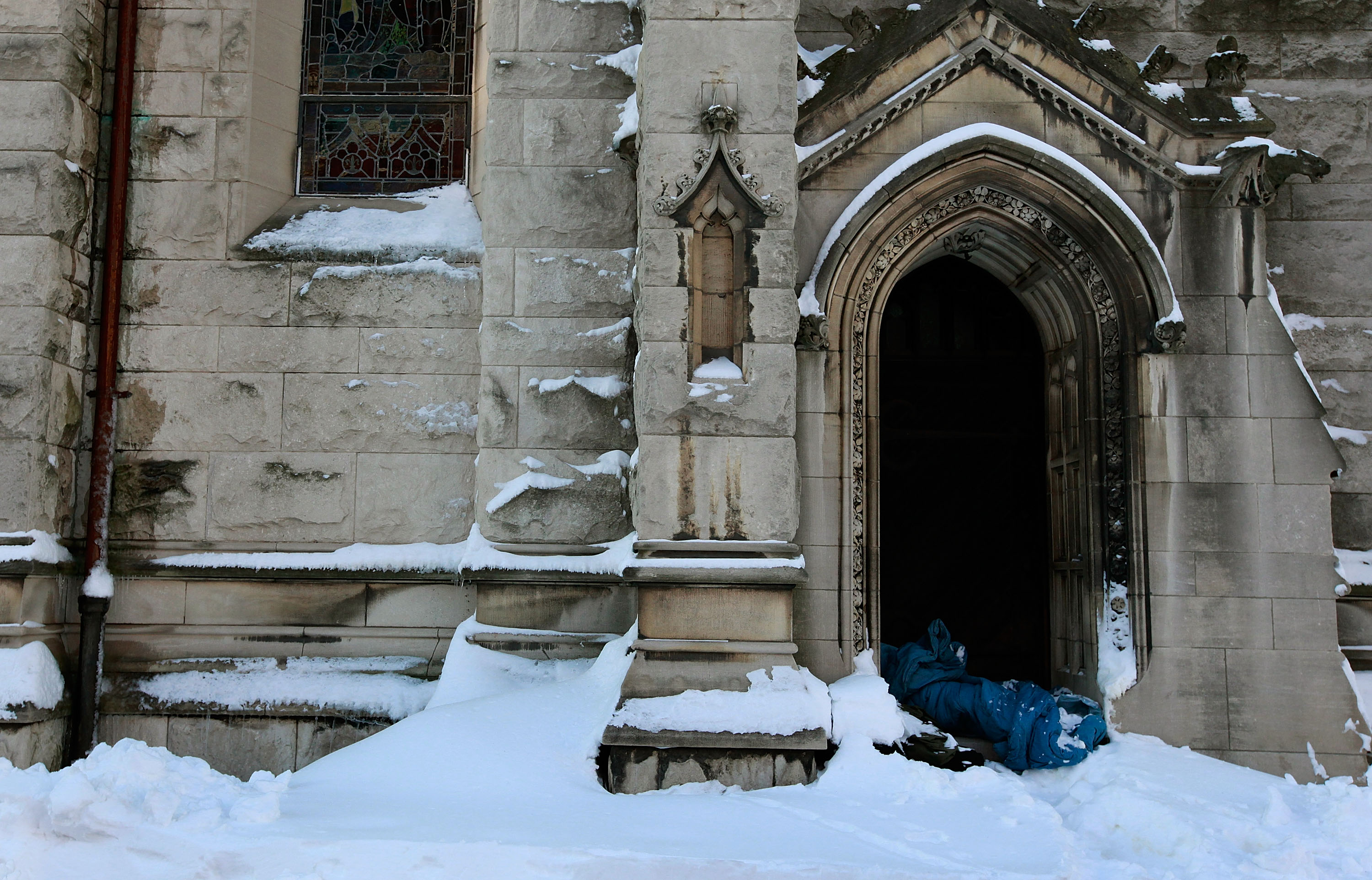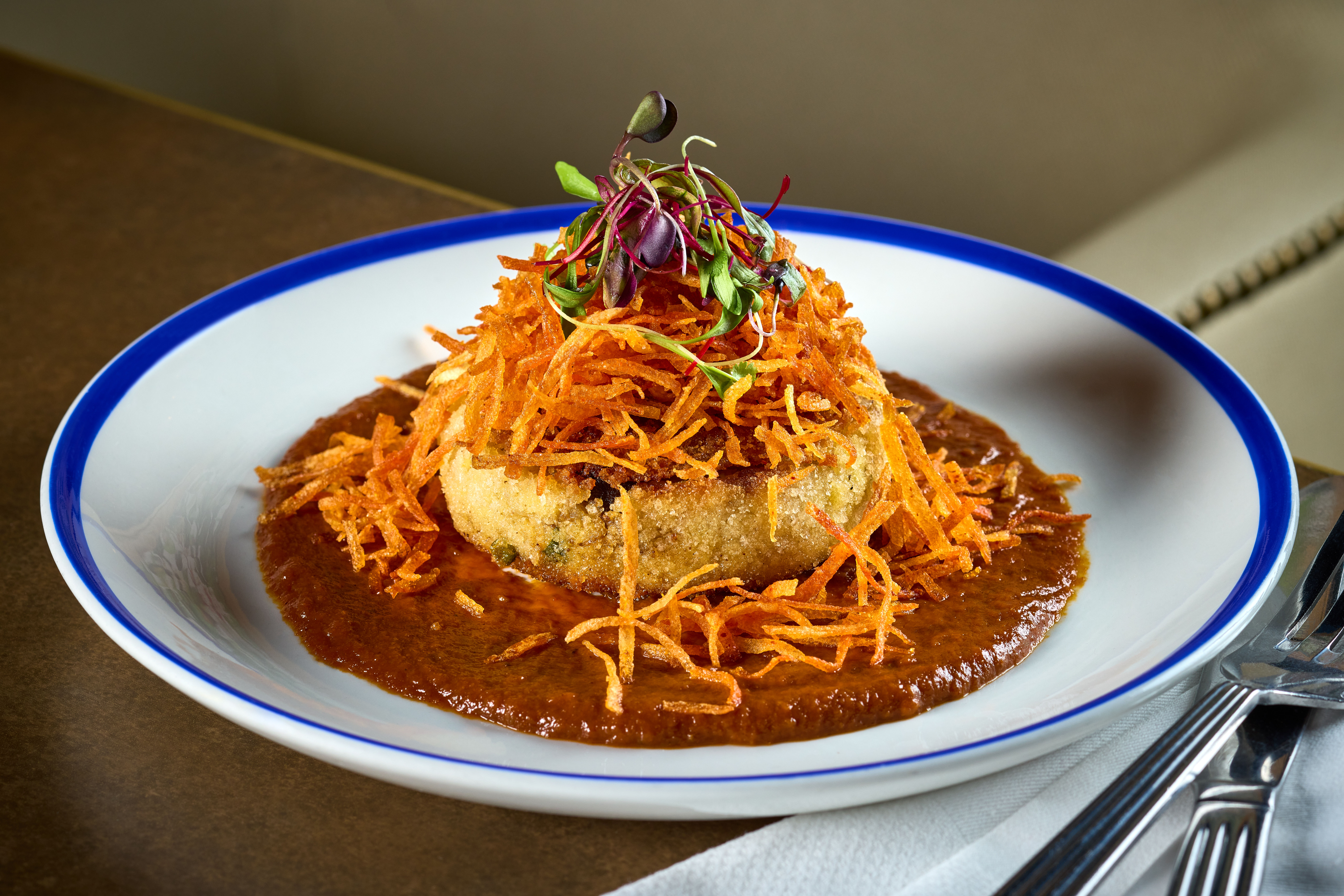WASHINGTON — Those walking the block of 24th and H Streets NW will likely notice several things: Cars and buses whizzing by, doctors and nurses hustling to the hospital, and a motorcade or two barreling through the narrow streets .
But look closely — just a few feet from the sidewalk — and you’ll see George Washington University seniors Isabelle Moody and Elizabeth Ferrante digging in the dirt.
More specifically, they’re tending to a bed of vegetables in the middle of the busy Foggy Bottom neighborhood.
“We have lots of Swiss chard and kale; these are going to be some squash and zucchini for the winter,” said Ferrante on a recent tour through George Washington University’s sustainable garden.
University students launched the GroW Garden in 2009, and in the last few years, the garden’s leaders have turned its focus toward feeding the city’s homeless population.
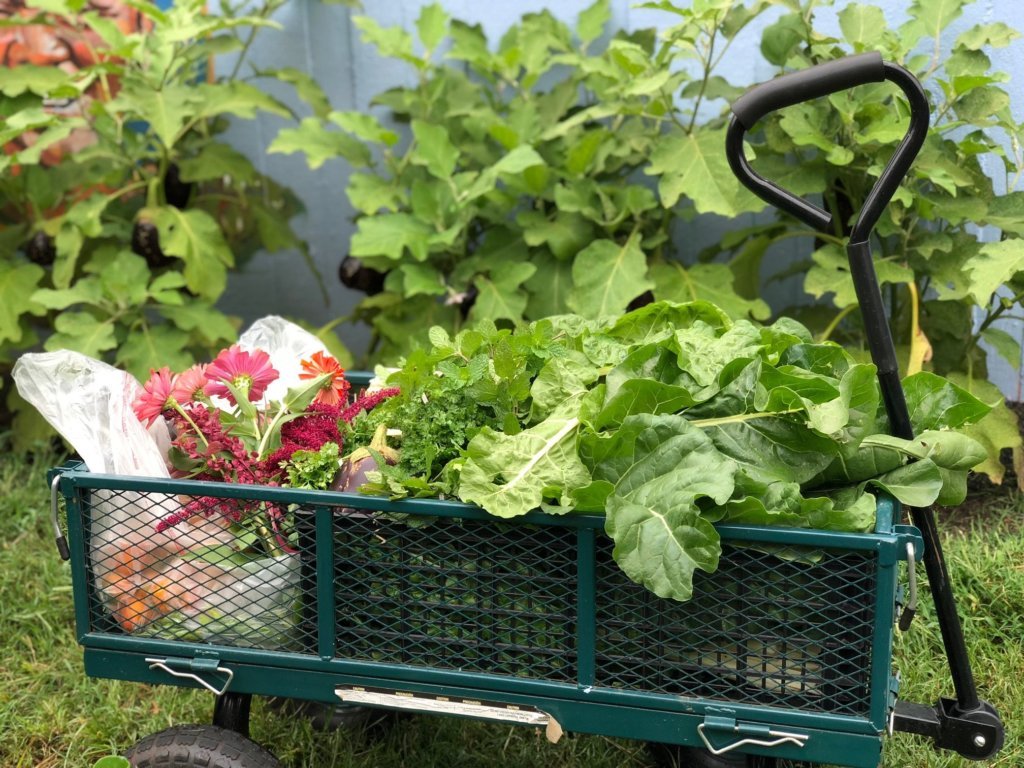
Each week, garden managers harvest crops — sometimes up to 40 pounds — and load up a wagon, which they wheel around the corner to Miriam’s Kitchen, an organization that works to end chronic homelessness, starting with a home-cooked meal.
“The greens are huge; the kale and the Swiss chard are big items; and [our guests] love the cherry tomatoes that they give us. They’re like popping little pieces of candy in the mouth,” said Cheryl Bell, executive chef at Miriam’s Kitchen.
Recently, the students who maintain the garden have started growing produce based on the demands that come from Miriam’s Kitchen. Herbs and tomatoes are at the top of the request lists, followed by greens.
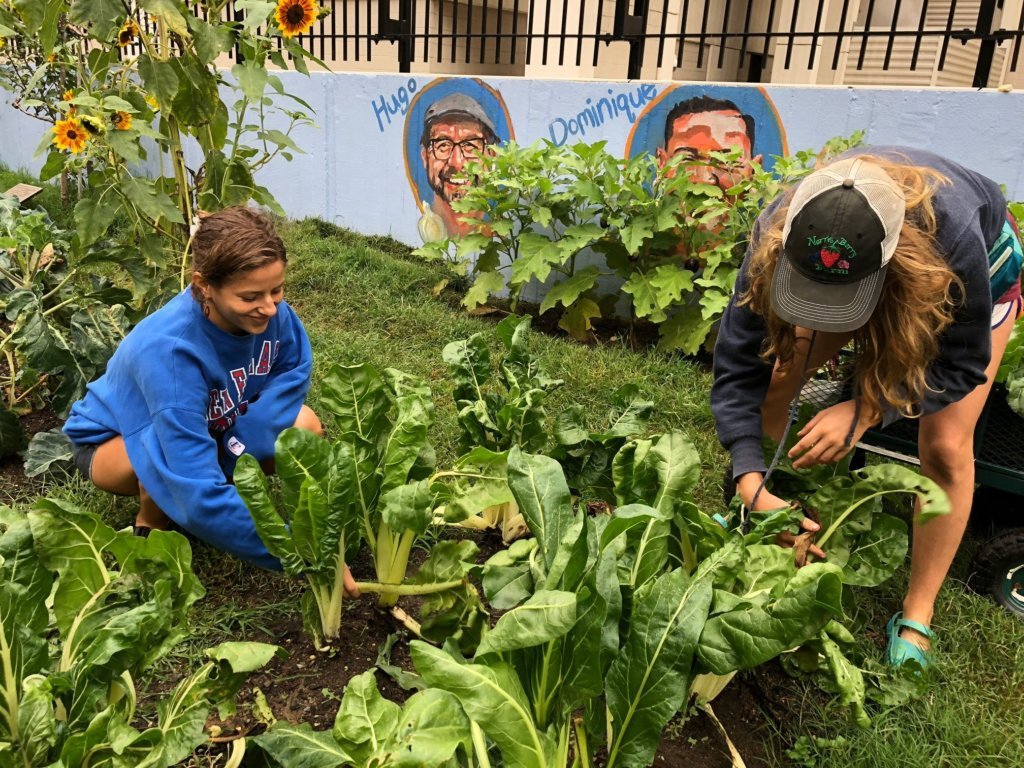
Once at Miriam’s, priority for the produce is given to residents in permanent supportive housing. Everything else is used in salads, sides and dressings served at dinner in the basement of Western Presbyterian Church on Virginia Avenue NW.
When Moody and Ferrante come across a few odds and ends in the garden — two carrots here, a half-bunch of kale there — they donate the items to the university’s on-campus food pantry.
“I think that’s just part of our mission of trying to think about what exists beyond GW’s bubble and how we, as students, need to think about communities who are experiencing food insecurity in D.C.,” Moody said.
Ferrante added, “I think [the garden] is really special, in the way that it connects people.”

